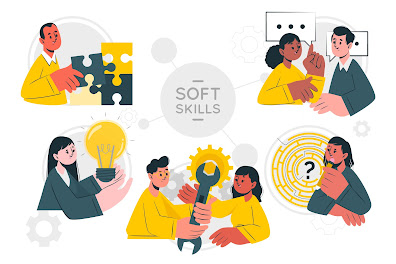Things You Need to Know Before Taking the Level 3 Certificate in Assessing Vocational Achievement
Introduction
Embarking on the journey to earn a Level 3 Certificate in Assessing Vocational Achievement (CAVA) can be a rewarding step for those looking to advance their careers in education and training. This certification is designed for individuals who assess occupational competence in the work environment and vocational skills, knowledge, and understanding in a variety of settings. Here's what you need to know before taking the plunge.
Understanding the Level 3 CAVA Qualification
The Level 3 Certificate in Assessing Vocational Achievement is a recognized qualification in the UK that equips you with the skills needed to assess learners' performance and knowledge in both workplace and classroom settings. This qualification is ideal for those who want to become assessors, whether they're new to the field or looking to formalize their experience with an accredited certificate.
Prerequisites and Eligibility
1. Educational Background
- While there are no strict academic prerequisites, having a Level 2 qualification or equivalent experience in your vocational area is beneficial. This background ensures you have the necessary subject knowledge to assess others.
2. Industry Experience
- Experience in your vocational field is crucial. Employers and training providers look for assessors who have practical knowledge and real-world experience to accurately evaluate learners' competencies.
3. Access to Learners
- To complete the qualification, you must have access to at least two learners you can assess. This is a mandatory requirement as the qualification involves practical assessment activities.
Course Structure and Content
The Level 3 CAVA qualification consists of three units:
1. Understanding the Principles and Practices of Assessment
- This unit covers the fundamental principles of assessment, including different types of assessment methods and how to apply them effectively.
2. Assess Occupational Competence in the Work Environment
- This unit focuses on assessing learners' performance in a work environment. You will learn how to plan, conduct, and document assessments.
3. Assess Vocational Skills, Knowledge, and Understanding
- This unit is about assessing learners in a classroom or workshop setting. It includes developing assessment plans, using different assessment methods, and providing feedback.
Study Options and Duration
The qualification can be pursued through various study modes, including:
- **Classroom-Based Learning**: Traditional face-to-face sessions with an instructor.
- **Online Learning**: Flexible, self-paced online courses.
- **Blended Learning**: A combination of online and in-person training.
The duration of the course varies depending on the mode of study and the training provider, but it typically takes between 3 to 6 months to complete.
Key Skills and Competencies Developed
1. Assessment Planning
- Learn how to design effective assessment plans that align with vocational standards and learners' needs.
2. Assessment Techniques
- Master various assessment methods, such as observations, professional discussions, and the review of learners' work products.
3. Feedback Delivery
- Develop the ability to provide constructive feedback that helps learners improve and achieve their goals.
4. Record Keeping
- Understand the importance of maintaining accurate records of assessments and learner progress, ensuring compliance with regulatory requirements.
Career Opportunities and Benefits
1. Diverse Career Paths
- A Level 3 CAVA qualification opens doors to various roles, such as an NVQ assessor, apprenticeship assessor, or internal quality assurer.
2. Increased Employability
- Holding this certificate enhances your credibility and employability in the education and training sector.
3. Professional Growth
- This qualification can be a stepping stone to further qualifications, such as the Level 4 Certificate in Education and Training or the Level 4 Award in Internal Quality Assurance.
Challenges and Considerations
1. Balancing Commitments
- Balancing study with work and personal commitments can be challenging. Time management and organizational skills are essential.
2. Access to Resources
- Ensure you have access to necessary resources, such as learners to assess, support from employers, and study materials provided by your training provider.
3. Ongoing Development
- The field of vocational assessment is constantly evolving. Staying updated with the latest practices and standards is crucial for long-term success.
Tips for Success
1. Choose the Right Training Provider
- Research and select a reputable training provider with positive reviews and a track record of successful graduates.
2. Engage Actively
- Participate actively in all training sessions, whether online or in-person. Engage with peers and instructors to enrich your learning experience.
3. Utilize Support Systems
- Make use of available support systems, including mentors, study groups, and online forums. Networking with other learners can provide valuable insights and assistance.
4. Practical Application
- Apply what you learn in real-world settings as soon as possible. Practical experience is invaluable in reinforcing theoretical knowledge.
Conclusion
The Level 3 Certificate in Assessing Vocational Achievement is a valuable qualification for those looking to make a meaningful impact in vocational education and training. By understanding the prerequisites, course structure, key competencies, and potential challenges, you can set yourself up for success. This qualification not only enhances your skills and career prospects but also enables you to contribute to the development of a skilled and competent workforce. Ready to take the next step? Equip yourself with the knowledge and skills needed to excel in the global job market through vocational education.

.jpg)


Comments
Post a Comment